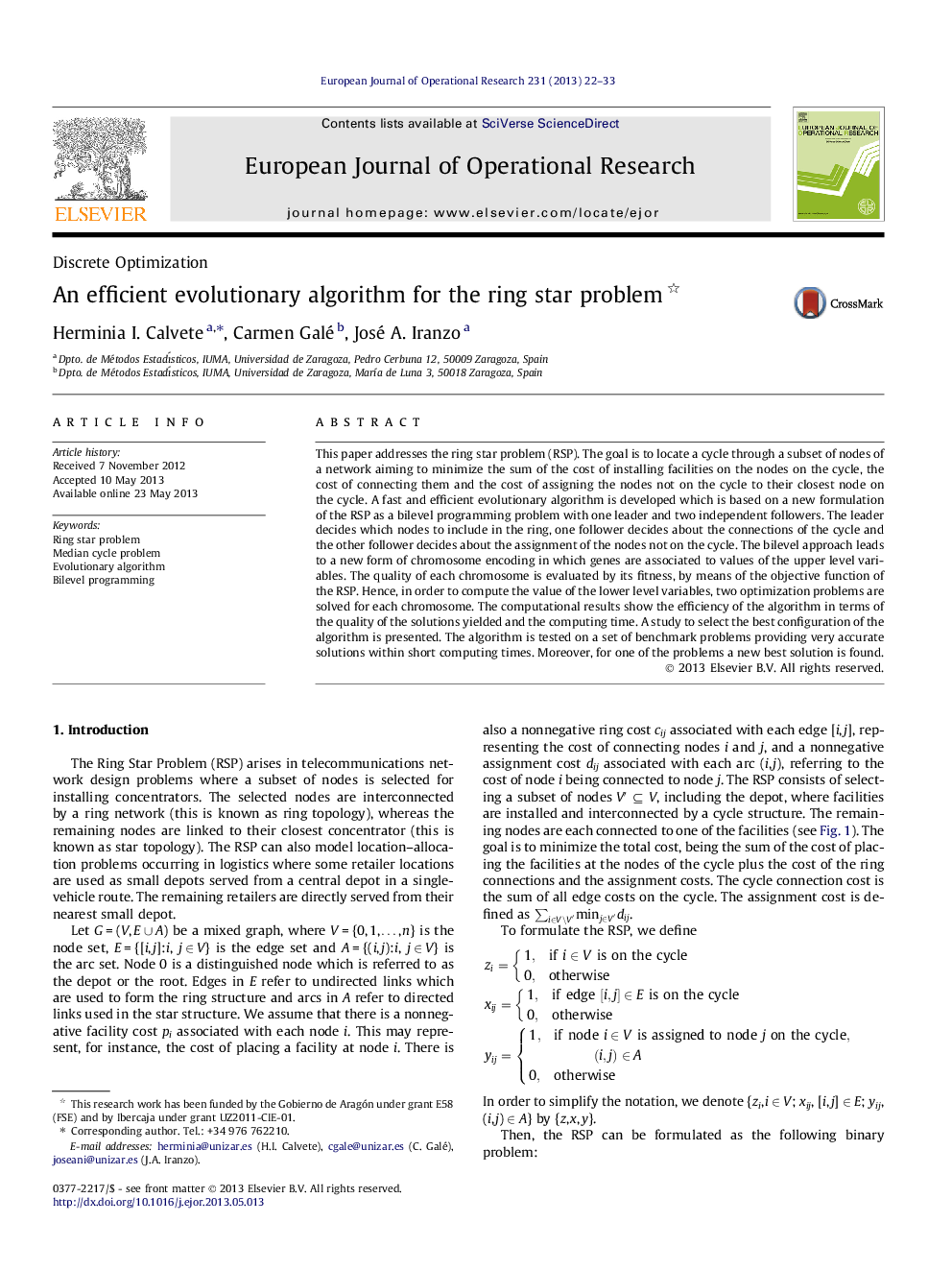| Article ID | Journal | Published Year | Pages | File Type |
|---|---|---|---|---|
| 479915 | European Journal of Operational Research | 2013 | 12 Pages |
•A fast and efficient evolutionary algorithm for the RSP.•A formulation of the ring star problem as a bilevel program with two followers.•In 92.74% of benchmark problems, the best known result has been matched.•For one problem, a solution better than the best known solution has been obtained.
This paper addresses the ring star problem (RSP). The goal is to locate a cycle through a subset of nodes of a network aiming to minimize the sum of the cost of installing facilities on the nodes on the cycle, the cost of connecting them and the cost of assigning the nodes not on the cycle to their closest node on the cycle. A fast and efficient evolutionary algorithm is developed which is based on a new formulation of the RSP as a bilevel programming problem with one leader and two independent followers. The leader decides which nodes to include in the ring, one follower decides about the connections of the cycle and the other follower decides about the assignment of the nodes not on the cycle. The bilevel approach leads to a new form of chromosome encoding in which genes are associated to values of the upper level variables. The quality of each chromosome is evaluated by its fitness, by means of the objective function of the RSP. Hence, in order to compute the value of the lower level variables, two optimization problems are solved for each chromosome. The computational results show the efficiency of the algorithm in terms of the quality of the solutions yielded and the computing time. A study to select the best configuration of the algorithm is presented. The algorithm is tested on a set of benchmark problems providing very accurate solutions within short computing times. Moreover, for one of the problems a new best solution is found.
